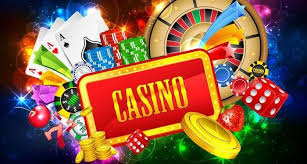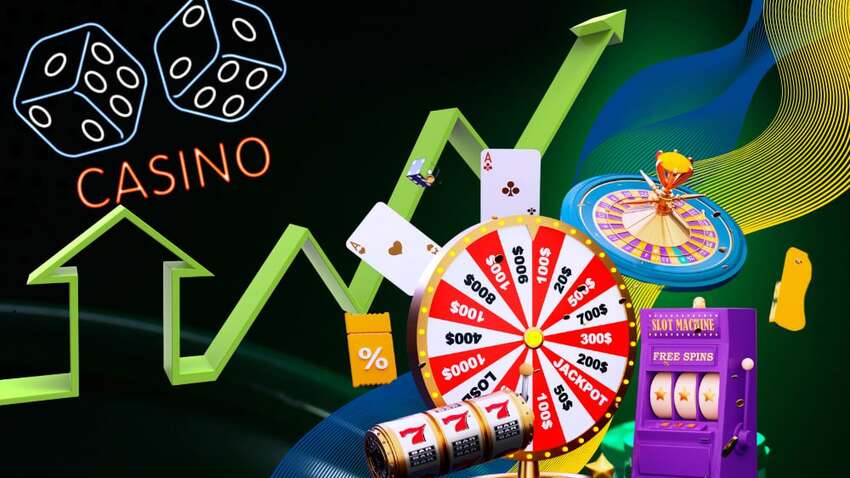
The Rise of Decentralized Casinos: A Revolution in Gaming
The gambling industry has witnessed a significant transformation in recent years, with the advent of blockchain technology paving the way for innovative gaming experiences. Among these innovations is the rise of decentralized casinos, which present a new paradigm for online gambling. Decentralized casinos offer players increased security, transparency, and autonomy, making them an attractive alternative to traditional online casinos. In this article, we will delve into the concept of decentralized casinos, their advantages, and the challenges they face, as well as speculating on their future in the gaming landscape. For an exciting online gambling experience, check out The Rise of Decentralized Casino Platforms https://888starz-chile.com/.
Understanding Decentralized Casinos
Decentralized casinos are online gambling platforms built on blockchain technology, which allows them to operate without a central authority. This means that transactions and operations are managed through smart contracts, which are self-executing contracts with predefined rules and conditions. By leveraging decentralized networks, these casinos ensure that gaming outcomes are fair and verifiable, eliminating any possibilities of fraud or manipulation that can occur in traditional gambling environments.
Benefits of Decentralized Casinos
There are several key benefits that decentralized casinos offer to players, which contribute to their growing popularity:
- Transparency: Every transaction made in a decentralized casino is recorded on the blockchain, making it publicly accessible. This transparency ensures that players can verify the fairness of games and the integrity of the casino’s operations.
- Security: With decentralized casinos, players maintain control over their funds. Smart contracts minimize the risk of hacks and fraud that often plague traditional casinos. Players can gamble without worrying about the security of their funds being compromised.
- Lower Fees: Traditional casinos often impose significant fees on deposits and withdrawals, reducing the overall player experience. Decentralized casinos typically have lower operational costs, allowing them to pass these savings onto players in the form of reduced fees.
- Global Access: Decentralized casinos can be accessed from anywhere in the world, provided there is an internet connection. This eliminates the geographical restrictions often imposed by traditional casinos, opening doors for players in regions where gambling might be heavily regulated or restricted.
- Data Privacy: Players are not required to provide extensive personal information when gambling in decentralized casinos. This enhances privacy and allows individuals to gamble anonymously without compromising their identity.
Popular Types of Decentralized Casino Games
Decentralized casinos offer a variety of games to cater to diverse player preferences. Some popular types include:
- Dice Games: Simple and straightforward, decentralized dice games are popular among players looking for quick and easy betting experiences.
- Card Games: Games like poker and blackjack are often featured in decentralized casinos, allowing players to compete against each other for prizes.
- Slot Games: Decentralized slots operate similarly to traditional slots, with the added benefit of being provably fair.
- Sports Betting: Players can place bets on various sports events through decentralized platforms, gaining access to a global market of sporting events.
The Role of Cryptocurrency in Decentralized Casinos

Cryptocurrency plays a pivotal role in the operation of decentralized casinos. Most platforms accept a range of cryptocurrencies as payment, facilitating secure and anonymous transactions. Popular cryptocurrencies such as Bitcoin, Ethereum, and various altcoins are commonly used, providing players with ample choices for funding their accounts. Moreover, the use of cryptocurrency often allows for instant deposits and withdrawals, significantly enhancing the user experience.
Challenges Facing Decentralized Casinos
Despite the numerous advantages, decentralized casinos also face several challenges that need to be addressed for their continued growth:
- Regulatory Issues: The regulatory landscape surrounding cryptocurrencies and online gaming is still evolving. Many governments are hesitant to accept decentralized platforms, leading to legal uncertainties that could affect their operations.
- It Might Be a Wild West: With minimal oversight, players may encounter fraudulent or poorly designed platforms. It’s essential for players to conduct thorough research before engaging in any decentralized casino to avoid scams.
- Technical Barriers: While blockchain technology offers numerous benefits, it can be complex and intimidating for new users. Many potential players might struggle with the technical aspects, creating a barrier to entry.
- Market Competition: With the rapid growth of decentralized casinos, competition is intensifying. Platforms must continually innovate and improve their offerings to attract and retain players.
The Future of Decentralized Casinos
As the decentralized finance (DeFi) movement continues to gain momentum, the future of decentralized casinos appears promising. Innovations in blockchain technology and the increasing acceptance of cryptocurrencies are likely to enhance the user experience further and make decentralized platforms more appealing to a broader audience.
Additionally, the potential for integrating Virtual Reality (VR) and Augmented Reality (AR) into decentralized casinos opens up a new frontier in gaming. This could create immersive gaming experiences that were previously unimaginable in the traditional online gambling world.
As decentralized casinos continue to evolve, they have the potential not only to reshape the gambling landscape but also to create a more equitable and player-centric environment for online gaming. With their unique blend of cutting-edge technology, enhanced security, and player empowerment, decentralized casinos are poised to lead the future of gaming as we know it.
Conclusion
The rise of decentralized casinos is indicative of a broader trend in the gaming industry toward increased transparency, security, and player autonomy. As these platforms continue to develop and gain traction among players, they challenge traditional gaming models and offer an exciting glimpse into the future of online gambling. Whether you are a seasoned player or new to the world of gambling, the rise of decentralized casinos presents an opportunity to engage in gaming like never before. As we embrace this technological revolution, let us not forget to prioritize responsible gaming practices and ensure that the industry continues to evolve in a positive direction.


Leave A Comment